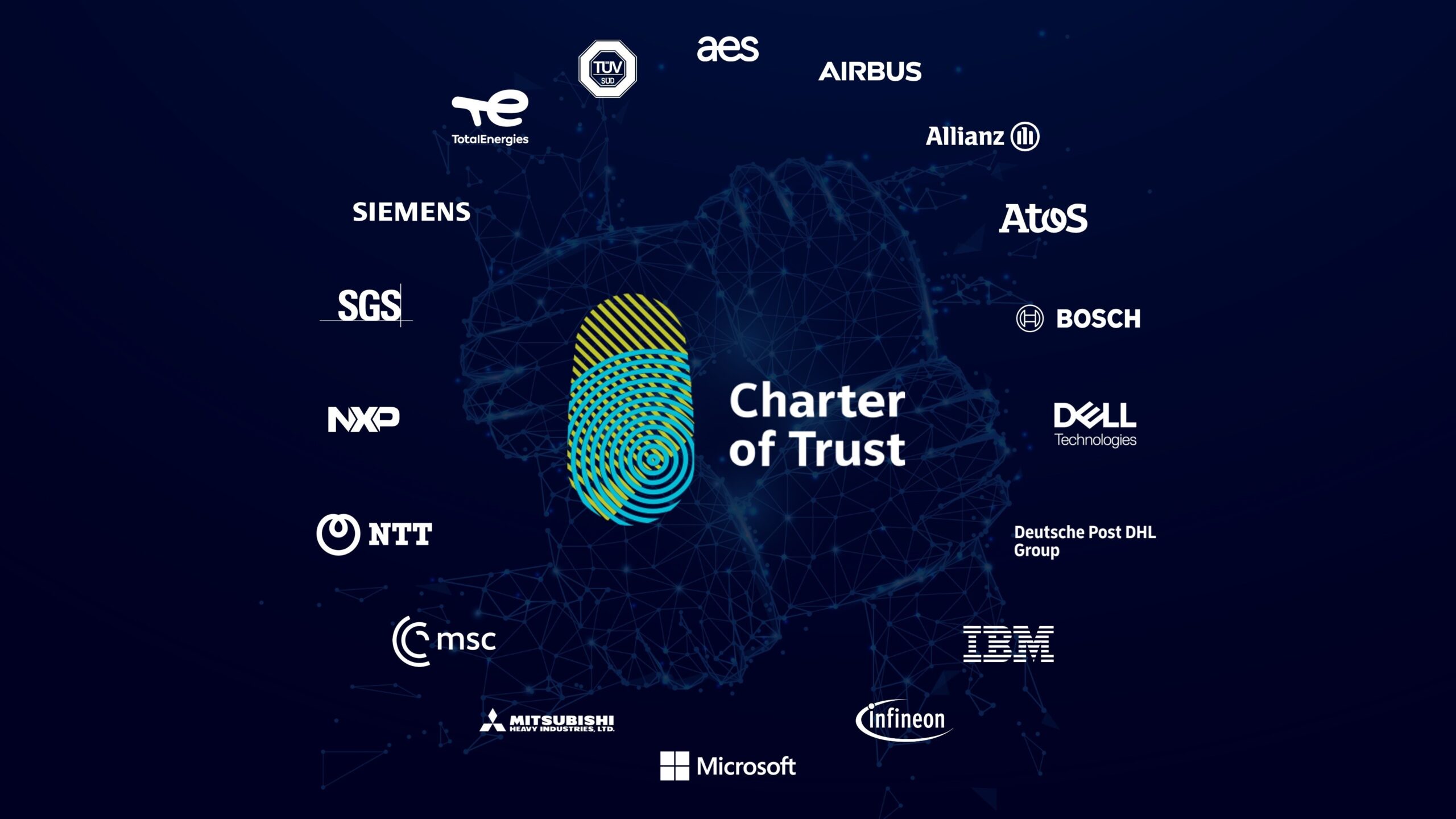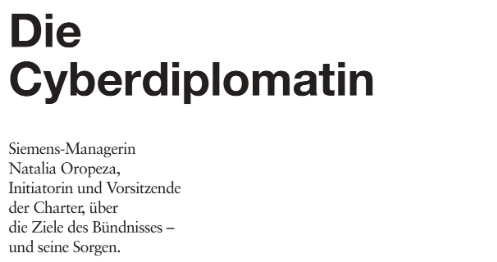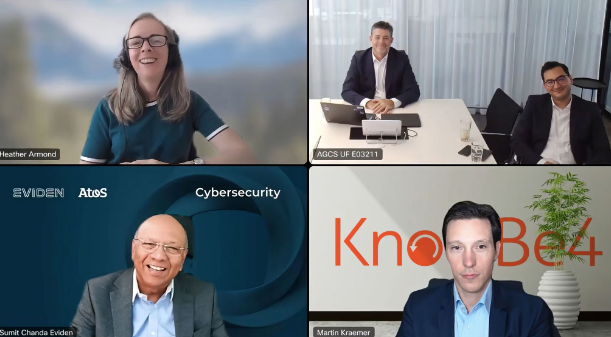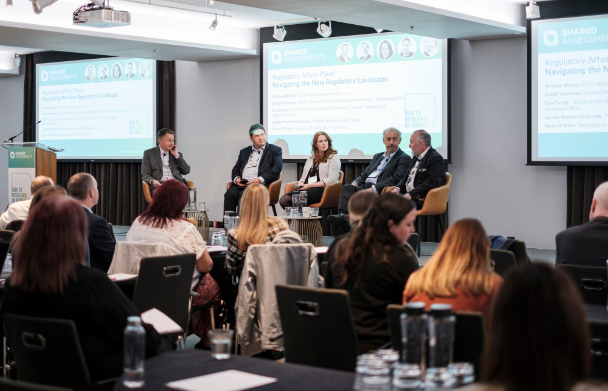Microsoft has joined the Charter of Trust (CoT) cybersecurity initiative as of November 10, 2022. As a CoT member, Microsoft plans to contribute its cybersecurity expertise in developing and promoting awareness of robust security principles for a secure digital world. With the addition of Microsoft, the Charter of Trust initiative has grown to 18 members.

“The Charter of Trust embodies the values we at Microsoft take seriously: being proactive, open, transparent, and collaborative in developing cybersecurity best practices and enhancing trust,” said Tom Burt, Corporate Vice President of Customer Security & Trust at Microsoft. “Industry partnership is crucial to addressing the challenges we face today, and we look forward to working with the Charter’s members to drive forward strategies and initiatives that strengthen cybersecurity.”
“Cybersecurity is the key to building people’s confidence in digitalization,” said Cedrik Neike, member of the Managing Board of Siemens AG and CEO of Digital Industries. “By bringing Microsoft on board, the Charter of Trust is, again, gaining considerably more weight for making our connected world more resilient and for shaping our digital future.”
Over the last four years, the Charter of Trust has already launched a wealth of measures to enhance cybersecurity – including the “Security by Default” principle, which takes cybersecurity into account right from the design phase and provides products with preconfigured security measures. In addition, the CoT partners have defined baseline requirements for their suppliers in order to further enhance cybersecurity throughout supply chains. The primary focus in the next phase will be on implementing a cross-industry approach to evaluate supply-chain security. In this context, the growing Charter of Trust community will provide companies – mainly small and medium-sized businesses – with information, training and further resources.
The CoT initiative collaborates regularly with various global authorities and scientific institutions to also drive advances in cybersecurity internationally and harmonize efforts across national borders and organizational boundaries. For this purpose, the CoT initiative has created the Associated Partner Forum, which has been joined by institutions such as the German Federal Office for Information Security, Japan’s Ministry of Internal Affairs and Communication (MIC), the Canadian Centre for Cybersecurity and the Hasso Plattner Institute for Digital Engineering GmbH (HPI) in Germany.
At the Munich Security Conference in February 2018, Siemens and eight partners from the industrial sector signed the world’s first joint charter for greater cybersecurity. In addition to Siemens and the Munich Security Conference, the signatories include AES, Airbus, Allianz, Atos, Bosch, Dell Technologies, Deutsche Post DHL Group, IBM, Infineon Technologies AG, Mitsubishi Heavy Industries, NTT, NXP Semiconductors, SGS, TotalEnergies, TÜV SÜD – and now Microsoft.


You may also like

Chairwoman Natalia Oropeza in Brandeins Magazine
In an interview with Dorit Kowitz, Natalia dives deep into the pressing issues facing the cybersecurity landscape, explaining how the Charter of Trust bundles the expertise of different businesses across several regions to stay resilient in the face of evolving threats. As Natalia Oropeza says: "We all win if cybercrime doesn’t win."
Here are three key insights from her interview:
🔑 Collaboration is essential: No single organization can tackle cyber threats alone. The Charter of Trust is a prime example that businesses nowadays are more transparent when it comes to attacks and that sharing information in this field can be beneficial.
🔑 Addressing the digital skills gap: The Charter of Trust is working to address the global shortage of cybersecurity professionals by encouraging diversity and actively promoting opportunities for women to join the field.
🔑 Unified regulations: Harmonizing global cybersecurity standards will reduce vulnerabilities, helping businesses and governments combat threats more effectively.
The full interview is available here: https://lnkd.in/gRm6ZDGC


Cybersecurity Awareness Month
The complexity and urgency of this topic gathered a lot of interest, with 600+ attendees throughout the whole panel, which was composed of Jon-Paul Jones, COO at AZ Commercial, Firas Ben Hassan, GenAI expert & Manager of AllianzGPT at AZ Technology, Dr. Martin J. Krämer, External Security Awareness Advocate at KnowBe4, and Dr Sumit Chanda, Global CISO at Eviden & Chair of the Global External Engagement Working Group at the Charter of Trust.
We are pleased to see Dr. Sumit Chanda from Eviden bringing in his unique CISO insight on what these emerging technologies mean in day-to-day cybersecurity practices and bringing in the Charter of Trust perspective on this topic as well.
Thank you, Ervin Cihan and Haydn Griffiths for inviting other CoT Partners and for the great initiatives that Allianz is putting together within this year’s Security Awareness Month. And special thanks to Heather Armond for the great moderation.


UK/EU Summit - “Risk to Resilience”
💡Under the theme “Risk to Resilience” the first event of this series was held in London and brought together professionals from different industries and regions. Detlef participated in the panel about the complex regulatory landscape and emphasized that new legislation like the EU AI Act, DORA and Hashtag#NIS2 continue to push the standard of care on cybersecurity and other risks.
Thanks to Shared Assessments for organizing such an amazing event and inviting the Charter of Trust to participate in this high-class panel alongside Andrew Moyad, CEO at Shared Assessments.



